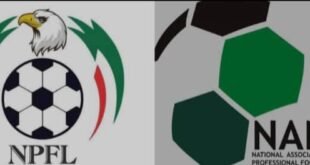The House of Representatives joint committee on petroleum resources (downstream and midstream) has issued arrest warrants against Alhaji Aliko Dangote, Chairman of Dangote Refinery and Petrochemicals, Nigerian Downstream and Midstream Petroleum Regulatory Agency (NMDPRA), International Oil Companies (IOCs) and other stakeholders.
The gag order prevents the parties concerned from commenting further on the allegations and counter-allegations circulating about the quality of petroleum products from the Dangote Refinery and allegations of monopoly leveled against the company.
On July 18, Farouk Ahmed, chief executive of NMDPRA said local refineries, including the Dangote refinery, were producing inferior products compared to those imported into the country.
The oil regulator also accused Dangote of monopolizing.
Aliko Dangote, CEO of Dangote Group while chairing a House of Representatives meeting on the 650,000 barrel per day refinery over the weekend, denied both claims.
Therefore, on Monday, Ikenga Ugochinyere, chairman of the downstream petroleum resources committee at the committee’s opening session said a “thorough and transparent” investigation would be conducted into the claims, including detailed laboratory investigations at all local refineries, marketing and importing facilities, and regulatory agencies.
He also asked all parties not to comment further on the matter.
He said the committee resolved that the parties to the heated argument — the Dangote refinery, other refiners, NMDPRA, marketers and relevant stakeholders — “should henceforth desist from further allegations and counter-allegations pending the conclusion and outcome of the investigation”.
Ugochinyere said the committee would further investigate the “indiscriminate” issuance of licenses and importation of refined petroleum products, the reversion of PMS price interventions, alleged non-availability of products to marketers from NNPC retailers, and the endless diversion of refinery rehabilitation schedules as well as nefarious activities at petrol depots.
READ ALSO: Senate to probe substandard fuel imports into Nigeria
“The committee will also conduct a legislative forensic investigation into the presence of middlemen in the crude oil trade, the alleged absence of international standard laboratories to test for adulterated products, the influx of contaminated products into the country, the alleged failure to domesticate profits made from crude oil marketing sales to local banks, the abuse of the PFI regime, the importation of products that have been manufactured in Nigeria and the use of international trading companies to resell fuel stocks to local refineries at exorbitant prices,” Ugochinyere said.
“The two committees are also mandated to conduct legislative forensic investigations into alleged importation of substandard and high sulphur diesel into Nigeria, alleged production of substandard diesel and other petroleum products by some domestic producers.”
He said the panel would also examine alleged irregularities in the import and distribution of PMS by state oil companies, the economic sustainability of alleged sales of petroleum products below fair market prices and their impact on downstream and local refineries as well as revenue generation and sources of funds for such price interventions, the amount imported, the amount spent and why the products are still high in the retail market.
In addition, the lawmaker said the committee would investigate alleged failures by some regulators to enforce compliance with standards, lack of support for local crude refiners, and the issuance of import licenses, despite local production.
“Following the investigative order given to the committee by the 10th lower house, today we will formally commence a comprehensive forensic legislative investigation into several critical issues that threaten the stability and confidence in our oil industry,” he said.
The lawmaker said the probe would begin by addressing allegations regarding the import of substandard petroleum products and the unavailability of crude oil to domestic refineries, which have raised serious concerns about the quality and safety of fuel in our market.
He said the panel would take a closer look at the integrity of the country’s petroleum product testing process, particularly focusing on the capacity and credibility of all testing laboratories of all stakeholders in the downstream and midstream value chain, local intermediaries and the laboratories they employ.
Ugochinyere said to ensure a thorough and transparent investigation, the committee would conduct detailed laboratory investigations at all local refineries, marketing and importing facilities, regulatory agencies, state oil companies and other actors in the sector.
“We will visit various fuel filling stations, depots and storage tanks to take samples in accordance with international standards, verify the quality of imported products, and assess the testing capacity of all refineries and all refined product handling equipment,” he said.
“Sample collection will be carried out in a transparent manner and in line with global best practices and will be carried out in four specimens for independent testing in accredited Laboratories with different standards, including those of all stakeholders involved in the refining and import of refined petroleum products.
“The committee will select different locations, including fuel stations, depots and even ships unloading. Samples will be taken in the presence of NMDPRA representatives, refinery representatives, marketers/importers and the committee.
“After sampling, the samples will be tested together and also independently by the committee and stakeholders to ensure their content. The components to be tested are as follows: sulfur content, density, distillation, flash point, octane number for gasoline and cetane number for diesel.”
Ugochinyere said zonal interaction committees would be set up to ensure “rapid movement” to various parts of the country to interact with stakeholders and collect samples from stakeholders’ facilities for immediate laboratory analysis.
He said invitations will be sent on Monday (today) for submission of relevant documents and attendance to key stakeholders, regulatory bodies, state oil companies, petroleum product refiners, IPMAN, PETROAN, independent oil producers, IOCs, importers, marketers, depot owners and other stakeholders too numerous to mention.
“We are committed to transparency, rigor and accountability throughout this process which will help us identify and address the underlying issues plaguing Nigeria’s petroleum sector,” Ugochinyere said.
By: Babajide Okeowo
Substandard petroleum product claims: House panel places suppression orders on Dangote, NMDPRA, others, launches probe first appeared on Latest Nigeria News | Headlines from Ripples Nigeria.
 JamzNG Latest News, Gist, Entertainment in Nigeria
JamzNG Latest News, Gist, Entertainment in Nigeria








